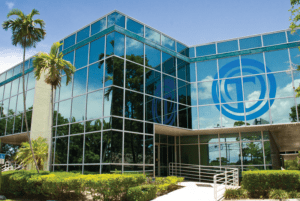Modafinil Abuse
Modafinil Addiction Modafinil is a medication prescribed to treat narcolepsy, excessive sleep disorder, or shift work sleep disorder. Modafinil is prescribed for people who work late night shifts and have…
Read moreMore than 18 million people misuse prescription drugs per year.
Prescription drug abuse is characterized by a person’s usage of a prescribed drug that goes against their doctor’s recommendations.
 Although most people take prescription medications, including prescription opioids, drug addiction is usually accidental. At Transformations Treatment Center, we understand the unique challenges of prescription drug addiction, including how to manage associated withdrawal symptoms. Our specialized prescription drug addiction and opioid addiction treatment programs, rooted in research-based practices, are tailored to meet each client's individual use disorder needs, ensuring a path to a fulfilling life in recovery.
Although most people take prescription medications, including prescription opioids, drug addiction is usually accidental. At Transformations Treatment Center, we understand the unique challenges of prescription drug addiction, including how to manage associated withdrawal symptoms. Our specialized prescription drug addiction and opioid addiction treatment programs, rooted in research-based practices, are tailored to meet each client's individual use disorder needs, ensuring a path to a fulfilling life in recovery.
Our prescription drug addiction treatment center in Delray Beach is a beacon of hope, understanding, and healing. Our commitment to treating prescription drug addiction is unwavering: to guide individuals through a transformative journey, empowering them to reclaim their lives and experience lasting addiction recovery.
At Transformations Treatment Center, we understand that each individual's journey to recovery from prescription drugs and opioid painkillers is unique. That's why we offer a range of specialized prescription drug addiction treatment programs to meet our client's specific needs and challenges.
Our PHP program is designed to provide intensive, structured care for individuals transitioning from inpatient treatment or those requiring a higher level of care than outpatient services. This prescription drug abuse program offers a comprehensive approach to treatment, focusing on the root causes of addiction and equipping clients with the skills they need to achieve lasting sobriety.
Christian Faith: Spirituality and faith can be powerful allies in recovery. Our Christian/Faith-based program employs Masters level Christian therapists who combine treatment with Christian principles and spiritually-based 12-step work. We also participate in the renowned Celebrate Recovery program and offer baptisms, church services, and prayer groups in our on-site chapel.
Jewish Faith: We offer a Jewish/Faith-based integrated program that provides evidence-based substance use treatment while respecting Jewish core values, traditions, and principles. This program is committed to offering culturally and spiritually sensitive treatment for Jewish individuals confronting substance abuse and mental health challenges.
 Our IOP and OP programs to treat prescription drug addiction in Delray Beach, Florida, are designed to support clients transitioning back to their daily lives. These programs focus on helping clients identify substance abuse triggers, develop coping skills, and maintain sobriety. With flexible scheduling options, clients can participate in group therapy, individual counseling, and life skills training sessions tailored to their needs.
Our IOP and OP programs to treat prescription drug addiction in Delray Beach, Florida, are designed to support clients transitioning back to their daily lives. These programs focus on helping clients identify substance abuse triggers, develop coping skills, and maintain sobriety. With flexible scheduling options, clients can participate in group therapy, individual counseling, and life skills training sessions tailored to their needs.
 At Transformations Treatment Center, we believe in the power of experiential therapies to foster deep emotional healing. Through yoga, tai chi, and meditation, clients can connect with their emotions, release pent-up feelings, and find new ways to cope with stress and trauma.
At Transformations Treatment Center, we believe in the power of experiential therapies to foster deep emotional healing. Through yoga, tai chi, and meditation, clients can connect with their emotions, release pent-up feelings, and find new ways to cope with stress and trauma.
 Our heroes deserve specialized care. We proudly offer dedicated support for military veterans and first responders, acknowledging their unique experiences and challenges. This specialized treatment program is uniquely tailored to address the underlying issues leading to addiction among our heroes and help the individual and their family members understand the signs and symptoms of prescription drug abuse. What sets this program apart is its creation and leadership by military veterans and former first responders, assuring a deep understanding and empathy for the challenges faced by our clients.
Our heroes deserve specialized care. We proudly offer dedicated support for military veterans and first responders, acknowledging their unique experiences and challenges. This specialized treatment program is uniquely tailored to address the underlying issues leading to addiction among our heroes and help the individual and their family members understand the signs and symptoms of prescription drug abuse. What sets this program apart is its creation and leadership by military veterans and former first responders, assuring a deep understanding and empathy for the challenges faced by our clients.
The program offers a comprehensive behavioral and mental health component, ensuring that our heroes receive holistic care that addresses their physical and emotional well-being. Our approach is rooted in understanding their stressors, leading to some of the country's highest rates of substance abuse, depression, and suicide among these brave individuals.
Achieving recovery from prescription drugs shouldn't be a financial burden. We accept various insurance providers, ensuring our services are accessible. Your privacy is paramount; our team is here to help you navigate and understand your benefits. We take most major insurance providers, including Aetna, Blue Cross Blue Shield, Cigna, etc.
Though we strive to confirm your health insurance details for you, it's crucial to understand that the information given by your insurance company about eligibility and benefits is approximate and can change. The conditions of your insurance agreement dictate the benefits payment when services are rendered. Our committed staff at Transformations Treatment Center is always available to answer questions or address concerns about insurance validation.
Don't let prescription drug addiction define you. Contact Transformations Treatment Center at (800) 270-4315 and take the first step towards a brighter, addiction-free future.
Modafinil Addiction Modafinil is a medication prescribed to treat narcolepsy, excessive sleep disorder, or shift work sleep disorder. Modafinil is prescribed for people who work late night shifts and have…
Read moreBaclofen is a prescription muscle relaxer and goes by brand names like Lioresal and Gablofen. It treats many ailments dealing with stiff muscles, muscle spasms, and muscle pain. In some…
Read moreGabapentin belongs to its own drug class, the Gabapentinoids. It is a medication used to treat epilepsy and is also used to relieve neuropathic or nerve pain resulting from disorders…
Read more
How Can Subutex Be Abused?
Subutex is a trade name for buprenorphine. A prescription medication used for the treatment of op

Is Tramadol An Opioid Analgesic?
If you’re experiencing a range of moderate to somewhat severe pain, your doctor might pre

5 Scary Effects of Ambien
It might seem like there’s little danger from taking a prescription medication given to you by y

Is Methadone An Opiate Or An Opioid?
Methadone is an opioid narcotic used to treat pain of a moderate to severe level. Metha

Stages Of Percocet Withdrawal
Your doctor might prescribe you the drug Percocet after you’ve gone through surgery or for m